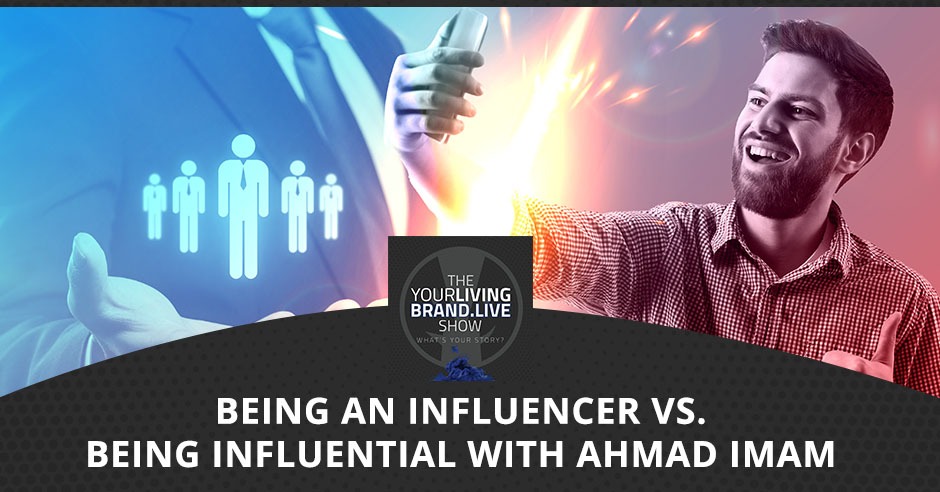
One of today’s most buzzworthy word, and something marketing mavens are always on the lookout for, is an influencer. But what does being an influencer mean, and what is the difference from being influential? We try to answer those questions and more, as Ben Baker sits down for an interview with Ahmad Imam, influencer and ambassador at Success Resources Australia. Ahmad discusses influence, how influencers work and why they need to have a positive impact on the world. Learn more about how influencers can change the world by tuning in.
—
Listen to the podcast here:
Being An Influencer Vs. Being Influential With Ahmad Imam
[0:00:55] Welcome to another episode. Welcome, my wonderful audience yet again. Thank you very much. You guys follow me. You’re part of what I do. You get in touch with me at [email protected]. You comment on LinkedIn and other social media platforms and I love what you guys do every week. Thank you for being part of this show. You are the reason that I do it. I brought a real influencer and influential person onto this show. One of my favorite people to follow from Australia. Ahmad Imam, he’s with Success Resources Australia. He’s got over one million followers and we’re going to talk about influence versus being influential. Ahmad, welcome to the show.
[0:01:43] Ben, it’s an absolute pleasure to be here. Thank you for that introduction. This conversation has been a long time coming so I’m looking forward to it.
[0:01:51] We know a lot of the people in common. We have a lot of people that we said to circle around the same people. I looked and I’ve got 200 or 300 people that I communicate with on a regular basis within Australia. I keep trying to get down there and you guys keep on having wildfires in this silly COVID thing. People keep saying, “Why don’t you come to speak in Australia?” “Would you stop having the wildfires and I’ll come?” We got to get me down there.
[0:02:22] We’d love to have you. It’s been a bit of a fortress now for the last few years. Things are slowly changing and we’re slowly welcoming people in which is great. We’d love to have you.
[0:02:34] It’s the same way in Canada. Maybe I can sneak you under the fence because we got the same fortress mentality happening in Canada here.
[0:02:41.9] I could fit into a carry-on. We’ll experiment.
[0:02:44] I’m very jealous. Be a great big rucksack. Maybe one of those military rucksacks. If I scrunch down, I might be able to get into one of those things.
[0:02:54] Ought to figure out how to move that thing. I love discussing it.
[0:03:00] You probably need 2 or 3 people to make it easy for you. Let’s start. You have one million followers on LinkedIn alone. I have no idea what your reach is on other social media platforms but let’s find out a little bit about you because there’s a big difference between being an “influencer” and being influential. I call you as being one of the influential people on social media, both online and offline. I want to find out what brought you to this point because there’s so much to unpack here.
You never look good making someone else look bad. Share on X[0:03:33] It’s a big story. It was a long journey for me, both personally and professionally but I’ll give you the quick version. I am an immigrant to Australia. I was born in Egypt. My family is Egyptian. We immigrated to Australia when I was four years old. I was thrown into school only knowing Arabic fluently and not knowing a word of English. I had to adapt quickly.
It was successful after a period of time and I was able to pick up the English. Unfortunately, I lost the Arabic in those parses. Now my Arabic is probably the equivalent of maybe a 2 or 3-year-old speaking Arabic. My journey was one that involves bullying and I would say bullying most of my schooling life. Bullying from being different. I was physically different. I spoke and behave differently.
That impacted me quite a bit in terms of my confidence and self-esteem. Especially at a time, approaching teenage years where you start to question where you sit in this big wide world, who you are and what is it that you can offer. It’s not a good time to start questioning yourself and your worth. I went through a period, which I’ll call the pains where I suffered internally. It was only at a point where I was about eighteen. I was working at a pizza place. I was washing dishes and making pizzas. I can still make a hell of a pizza. I do appreciate that time but I had a boss who was a bit of a mentor to me and I was still very low in self-esteem and confidence.
He saw something in me and he gifted me something that changed my entire trajectory. What he gifted me was a 24-disc CD set by Tony Robbins. It was called Personal Power II. This was back in the day when Tony Robbins was Anthony Robbins. I remember he used to wear a white shirt and suspenders and he looked like a bit of an accountant at that time but that changed everything for me. I’d never heard or seen anything about personal development or self-development.
I went home. I put on that first CD. As soon as I heard that voice something clicked in me. I owed that moment to everything else that took place afterward because that moment ignited something within me. I did that 30-day program. I started to challenge my fears. I started to challenge my self-limiting beliefs and my own opinion of myself, which was very low.
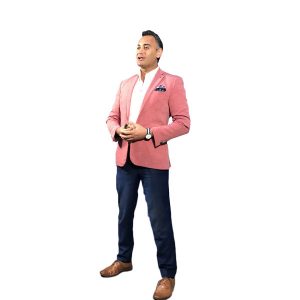
I started to do things that made me level up. I would volunteer to emcee at a friend’s wedding. I would volunteer to do sales presentations whenever I had a sales job, anything that would frighten me because I know that I would grow through it and I did. I spent a good 10 to 15 years building confidence and courage, to the point that it led me to where I am now. Where I am now is I’m within the self-development or personal development industry, which I love. I’m in a position where I’m in a business that partners with Tony Robbins, which is incredible. It feels like a full circle.
I get to do things now. I put myself in positions where I can do things that not only still challenged me but things that I seriously get a buzz from. Those things for me are more or less performing, presenting, hosting, being involved in content creation and having the ability to inspire and impact people. They’re all things that give me a buzz.
LinkedIn for me was an extension of all of that. It started as a wife made to start creating content because when I started, I had no idea what I was doing. Everything from my first video where I was super nervous and trying to figure out how to best use the camera to now where I’ve built a following over one million and I’ve put out daily content which I try and add as much value in as possible.
What I speak about are topics that hopefully inspire people, encourage people, empower people and impact people based on a lot of my experiences and my values. The topic of influence, I’m using the word in inverted commerce versus being influential is something that’s very important to me. I’m seeing a rise of influencers who are calling themselves influential and it’s wrong. I’d like to open that up and we can dive as deep as you want the dive.
[0:08:05] Before we do, the first thing I want to say is that teenagers are cruel. Whether it’s guys or girls and we don’t mean to be but it’s amazing the things that we do to try to boost our own self-esteem by breaking down other people. There are certain people and obviously, you were one of them that became the brunt of those. It’s certain people who make their way through it. Certain people live with it the rest of their life and some people, unfortunately, don’t make it to their eighteenth birthday and I’ve seen all three of them.
It’s very difficult for any of us to understand the pressures that we put on ourselves and other people when we’re young trying to figure out, first of all, who we are and figuring out we can’t be us unless we’re making ourselves better than else. That’s a world that we need to overcome and we need to mentor the next generation to be able to break that cycle. First of all, it’s unhealthy. Second of all, it does nothing but makes you look less than as you get older. If you can’t break that cycle and if you can’t sit there and say, “I’m not good unless I make somebody else bad,” all that does is make you less than in somebody else’s eyes and it continues that horrible cycle.
Anyone, whether you've got 500 followers or 10 million followers, can actually make a difference. Share on X[0:09:33] I appreciate you raising that. You never look good making someone else look bad. When you’re a teenager, you don’t have the self-awareness to know that when you’re putting someone else down to make yourself look good, that it’s making you look bad. It seriously impacts people. It took me about 5 to 10 years to build my confidence and courage back up. I know other people that were living through it and they have been able to achieve a lot of things because they’ve got this pressure that is still on them that they can’t get rid of.
As a result of cyberbullying, a lot of teenagers who, back in a day, once you leave school, that used to be it. The bullying used to stop and now with cyberbullying, it continues 24 hours a day. I know some teenagers that unfortunately took their lives because of them thinking at the time that there was nothing else to live for.
That lack of self-awareness can lead to other areas. It’s very sad. I’ve become the ambassador for Bully Zero which is an anti-bullying or bullying prevention not-for-profit in Australia. Their goal is to build and create resources and tools to give to everyone from bullies to people being bullied to also bystanders. Educate the bystanders on what they can do if they see a situation like that. We’ve got a lot of work to do in that space. It’s something that I’m very passionate about but I appreciate you touching on that.
[0:10:59] It’s important. Like you, I’ve known people that never found a way out. Unfortunately, at this point in the time, they’re 6 feet under and I go and visit their graves on a semi-regular basis. These are peoples that were 13, 14, 15 years old and never thought that there was anything to live for. The people that call themselves influencers that use their influence to bring other people down need to change. We need to help them change and we need to make them aware of the detriment that they’re causing others and that there’s no benefit to themselves. You and I could have a conversation about this that lasted for an hour but that’s something that’s near and dear to my heart.
[0:11:49] It’s something I’m super passionate about and are want to make as much of a change as I possibly can and at least ignite some spark for someone else to continue doing that. It’s sad to see and it’s human behavior at its worst at that age with little knowledge or experience to know how it can impact someone in terms of their mental health. It extends into many other areas and topics but it’s something that I certainly want to focus time on.
[0:12:18] Let’s leave that for a bit and let’s go into influencers versus being influential. There is a natural segue. How do you define both? Everybody sits there and goes, “He’s an influencer. She’s an influencer. They must be important. They must be somebody to follow. They must be somebody that I have to hang on every word of,” but do we?
[0:12:43] The short answer is no and the other answer is it depends. Influence is the ability to lift people up to your perspective. That’s the textbook definition of influence. The word influencer within society has changed dramatically over the last few decades. Social media has not helped, believe it or not but if we talk about prior to social media, if you were to use the word influencer, you’d have some incredible leaders throughout history that you would think of that have made a serious impact on this planet.
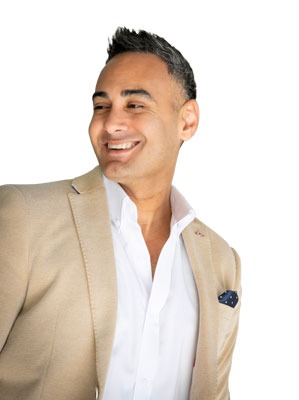
We’re talking about people like Martin Luther King, Abraham Lincoln, JFK and Oprah Winfrey. We’ve got Tony Robbins and people, who through their charm, personality and courage, have had an opinion and used that opinion to make a positive change on this planet. That was an influencer. When we talk about an influencer, we’re talking about someone that collects likes and comments on a post and it almost doesn’t matter what post.
There’s a very big difference. What I’m seeing on social media and we were talking about this offline is posting videos and they’re taking other people’s YouTube videos. It might be a YouTube video of a cat or a dog, posting that on LinkedIn, getting a whole bunch of likes and comments and then calling themselves influencers. What are they influencing exactly?
We’re talking about the difference between influence and being influential. In my opinion, the difference is how you use your influence or your following to be able to make a positive impact, both online and offline. If you’re able to do that then yes, you can be considered influential. If you’re simply collecting likes and comments and doing nothing else with society then that is questionable in my opinion. That’s something that we need to decipher.
[0:14:40] That’s an important definition because businesses are looking at these influencers. They’re saying that they’ve got 50,000 followers, 100,000 followers, 1 million followers. “I need to follow them. I need to hire these people at ridiculous amounts of money to be able to solicit my product for me because they’ve got a group of people out there that are listening to them.” The question is, are the people that are listening to them, your audience? Just because somebody has got 30,000, 50,000, 100,000 or 1 million followers, are they the million followers that are going to care about what you care about and be able to be influenced by this person to be able to buy your product or do what you want them to do?
[0:15:31] Yes, 100%. We can then go deeper into many other areas. For example, there’s the difference between being an original content creator or someone that’s a curator. There is a difference between being a creator and a curator. An original content creator, in my opinion, builds a lot more real-world influence and can become influential because what you’re talking about when you’re creating your content is your values.
The foundations of your being, the things that you believe in and you’re attracting people that believe the things that you believe. You can have an influence over those people. When you’re a curator like we mentioned posting a video of a cat or a dog, you’re an entertainment channel. They’re not people that are influenced by you, your personality and your opinion that people that are entertained by what it is that you offer.
If you were to then post something about an incredible product that you liked or you’ll stay at a hotel, would that influence people’s decisions after they’ve been absorbing a whole bunch of curated content? That’s something else to consider. In my opinion, there is also a big difference between original content creation and curated content as to whether or not you can be influential or an influencer.
It takes a lot of effort, a lot of time, a lot of energy, a lot of thought, a lot of consistency, a lot of courage to be a consistent content creator. Share on X[0:16:49] There’s nothing wrong with taking curated content every once in a while. If you take that curated content and you say, “I saw this post by Seth Godin. I love it. This is what I liked about it. This is what I gleaned out of it. This is what you should do about it,” and attach the post. That’s one thing. Taking that post, posting it up to your wall somewhere, no comment, no nothing, letting it go and see how many people look at this post is something completely different. It’s a matter of going, “Is their original thought attached to what you’re curating?”
[0:17:27] That’s what it is. Is there original thought attached to it? We can even go to another level. There are people that literally plagiarize other people’s content and post it on their social channel with zero credit. I have my own opinions about plagiarism. It’s lazy and unethical. It shouldn’t be on. Especially, taking something that someone spends some time and thought on and then taking that entire piece of content and posting it as something that you have created. We’re seeing a lot of that now on social media. What’s sad is that everyone is in this big rat race to try and see who can end up on top. People are now doing anything as in trying to build influence by any means necessary.
That means posting any form of content that will get attention and the fact that we’ve reached that stage as opposed to the intention being, “Am I serving someone? Am I impacting someone?” It’s ridiculous. We need to pause for the moment and consider what it is that we’re doing because when you build a large audience, you also tend to lose focus on the fact that these are real people, that every single one of these people has their own community, that what you say can impact them either positively or negatively.
Anyone whether you’ve got 500 followers or 10 million followers, can make a difference. As content creators, we also have a responsibility. If you take that responsibility seriously, you can do some incredible things. If you don’t take it seriously then it can lead to some negative effects. That’s also something that we’ve seen on social media with a lot of online bullying, trolling and people spewing out negativity. The responsibility is an important one and it needs to be taken very seriously.
[0:19:22] That’s an important thing. To bring it back to the copyright thing, taking people’s original thought and twisting it and manipulating it and taking out their signature at the bottom or taking out their contact information and making people assume it’s your own. It’s stealing. It’s intellectual property theft, as far as I’m concerned.
It drives me crazy. I see this great meme online, I go to look at it and I look in the corner, I go, “Who created this?” The answer is I don’t know because somebody’s cropped it in such a way to make it look like it’s their own. Either I have to go in search for the original and take fifteen minutes to search for the original so I can give the artist the credit or I never use it or I put up a code that says, “I love this thing. I don’t know who the artist is. Does anybody know who the artist is?” It’s important that we give these people that take the time and the energy to create original content there do.
[0:20:29] You would know better than anyone. That takes a lot of effort, time, energy, thought, consistency and courage to be a consistent content creator. It requires a lot of investment. When I see that happen and I know everything that it takes to have created that piece of content, it does frustrate me. A lot of people don’t understand what it takes to invest time and energy to be a content creator, to either boost your profile, boost your brains or to try and make some impact. They’re starting to but to rip people off of all that work is not on, in my opinion.
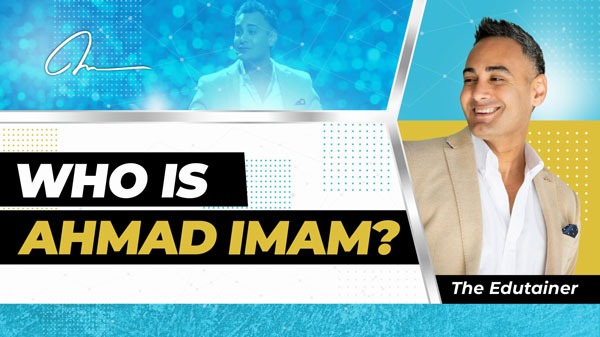
[0:21:40] How do we take that great content that you create? I’m like you. I create a new piece of content every single day. Seven days a week, there is new content that goes up on social media. Some of it’s fun some of it’s thought-provoking some of it is just, “I saw this and this is what about it,” but how do we take that and bring that offline? That’s where the real influence is because it’s those conversations that come out of the conversation that you start online that is what changes the world.
[0:22:17] Every organization that I’m volunteering for or part of at the moment stems from some post that I created or a post that I commented on in LinkedIn. What happens is that you start to build and see different communities evolve and it’s important to be part of that or if you’ve created the post and link that. The magic happens in either the comments or the DMs. The magic does happen offline where you build those relationships where you find out that someone else has a not-for-profit that is dealing with this exact same thing that I posted and then potentially working with them and seeing how you can evolve and be part of that.
I can then scale your message and impact people at scale. That’s how it happens for me. I would implore a lot of people that if you post something powerful that you’re passionate about, take notice of the comments. The people that post other people that do believe the things that you believe and it’s important to encourage that conversation and also respond to their comments, first and foremost.
If you can start that conversation offline, build that relationship with them and understand what it is that they do, a lot of the time, you’ll find out that they do something offline that helps solve that particular problem and then we can be part of that. I am the Ambassador for an organization called Bully Zero. They’re the largest Australian bullying prevention platform and not-for-profit.
A lot of what they do is pass on the resources and tools to give people the strength and courage to deal with those situations and to educate people like the bullies themselves and the bystanders to know the impact of their behavior. Things like that are evolved from a bullying post that I did on LinkedIn and now has put me in a position where I can impact so many more people with a community that is there that does believe the same things that I believe. Taking it offline, firstly, via the comments into the DMs and understanding how it is that people will respond to this is very important. That’s how you can make an impact.
[0:24:28] It’s that impact that changes other people’s lives. I know I can’t change the world. I’m one person. I can’t change the world but what I can do is I can influence my corner of it. I can have a conversation with you, you and I can spark an idea and we can influence a thousand people to each pick up a torch and move it a little bit further. The beautiful thing about being influential whether it’s being online or offline is to be able to spark passion and other people and give them the tools and the ability to move things forward. Other people will do things in different ways that we never even thought were capable if we give them the spark.
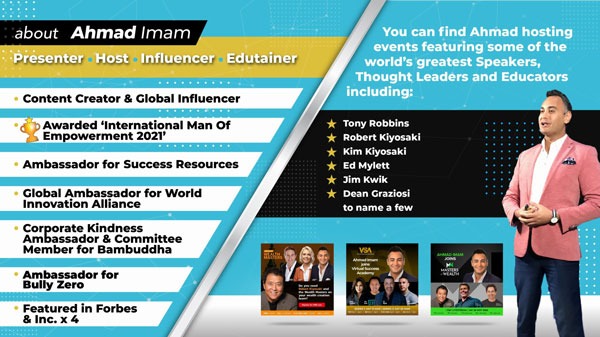
That is the goal of every single person to understand, first of all, what are you passionate about? What do you believe? Where do you have some knowledge base in and be able to help one other person? You’ll understand that and help that one person be a little bit better and then you’ve been influential. It doesn’t have to be 1,000 people or 1 million people. We can all start off by influencing one person.
[0:25:51] Speaking of influence versus influential, I receive a lot of engagement on my posts, a lot of likes and comments and I’m very blessed for it. I’m grateful for people that do that. The happiest moments for me, when I receive a direct message from a random person anywhere around the globe that says, “I read or viewed your last post. That made me think about this or think about that. I’m going to do things differently. As of this day, I’m going to do this.”
That warms my heart. You start to realize in those moments that people are listening, watching, and reading. These are real people that have real lives, their own struggles. That’s when you start to reinforce that responsibility that you have an audience. What is it are you going to spend your time doing and speaking about?
[0:26:46] Let’s take that one step further because we all need to learn how to say no. We all need to learn to say, “That’s not in our wheelhouse. That’s not something I have the bandwidth for. That’s not something I can concentrate on right now.” How do you decide what are the things that you want to concentrate on, the things that you could help with the things that you want to be influential about and the things that you sit there going, “That would be nice if I could do that. I wish I could help but there’s not enough of me to do this,” because if you don’t, you’re going to be spread too thin and you can’t do anything.
[0:27:24] You can quite easily get spread too thin. I filter it based on what you mentioned. What I can assist with, what I can help with and what I can impact. First of all, I’ve got a few rules of thumb. If someone messages me saying the word high, for example, I don’t respond to that. If you want to talk about something or if you want to start a conversation, get into it because you can’t imagine how many of those messages are received.
Other messages are received but there are straight-out sales pitches that either don’t have my name correctly or it’s clearly a bulk email. I don’t respond to any of those. If people send me a message asking me for money or a job in the very first message, I don’t respond to those. I respond to those and respond to every single message or people that take the time to write me a personal message and clearly have taken the time to write a personal message.
If it’s about a piece of content that they saw or about the situation that they’re in or a question that they have, I’m happy to assist them if they approach it correctly. It’s about approaching respectfully and with kindness. Anybody that approached it with those two qualities, I’m more than happy to respond but then I take it a step further and say, “Can I help with this? Can I assist with this?” If I can, I’ll get involved personally. If I can’t, I’m sure I know someone that is involved within that space that can potentially assist them. You can weigh yourself thin if you’re focusing on the wrong areas but if you’re focusing on the areas that you can directly assist with, that makes it a little bit easier.
A lot of research needs to go into who it is you decide to put your time, energy and dollars towards in terms of an influencer to actually represent your brand. Share on X[0:28:58] How do you feel about connection requests? I’m sure like you, I get them all day every day and people hit the connect button. There’s no personal attachment. There’s no reason why they are going to connect. There are no conversations about, “I was introduced to you by.” There’s that click. I ignore about 98% of them. I don’t know if I’m being mean, disingenuine or if I’m sitting there going, “If you took ten seconds and typed in five words into that connect button that said, ‘Hi, I met you through this or I’m interested in this, would you connect?’” The answer would probably be yes.
[0:29:46] For my end, there’s a 90% chance of me accepting a connection request if there are a few words there. If they’re words that show the person has data personally seen a piece of content from me or personally viewed my profile, it’s almost 100% yes because I’ve seen they’ve put that effort in. There’s someone that can receive some value from what I do and I can learn something from them as well.
LinkedIn is one of those platforms where it’s very different from Instagram. On Instagram, I don’t care who follows me because I can’t control them. Anyone can press that follow button and stop following me. On LinkedIn, you have connections and followers and there’s a difference between both. If we’re talking about followers, anybody can follow me.
I don’t care who follows me if they personally follow the button and if they can receive any value from what I do then brilliant. The connections, we have the ability to be able to filter that to make sure that there are people that are aligned with what we do whether in terms of our values or profession. Maybe they’re potential clients or people within a similar community. That’s how it should be managed in my opinion.
I am very particular about who I connect with and I have a process with the connection. If someone sends me a connection request and it takes me a whole bunch of time that I want to make sure that that’s correct, I go to their profile. I see what they do. I review their last maybe 3 to 4 weeks’ worth of content to see what they talk about.
If I feel that there are any synergies or something that I can potentially be part of or they’re aligned in some way then I’ll connect. If I feel that it’s not in alignment at all or it’s a strong area or an industry that has absolutely nothing to do with me and we wouldn’t even be speaking in the future at any time then I don’t connect with them. I feel the connections should be targeted. The followers can be anyone that wishes to follow. That’s how I approach it.
[0:31:36.0] People need to look at that and think about that, about the people that are the followers versus the people over connections because as you said, anybody can follow you or me. I have around 10,000 connections or followers. You have far more than that. It doesn’t matter because hopefully those people are gaining a little bit of knowledge from the information I get. If they do, awesome, that’s great but those are not the people I have true influence over. Those are not the people that I’m going to have a conversation with. Those are not the people that truly care about me and I care about them.
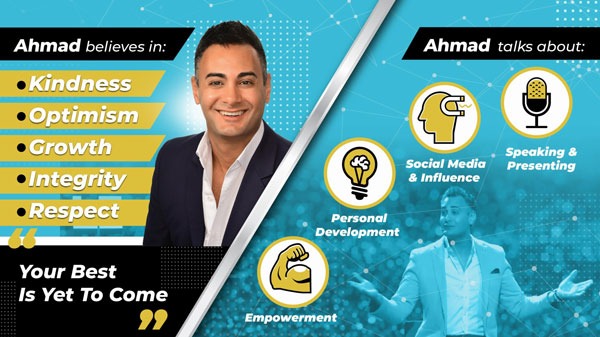
It’s people that are trying to glean something from my daily posts. Great. I love that but I don’t have much influence over those people. Companies, individuals and social media marketers need to understand the difference between influencers and connections and what that truly means in terms of how we speak to these people, what we can expect from these people, how we relate to these people and what these people should expect from us. That’s something that there are blurred lines. I’d love to hear your thoughts on that as one of our closing conversations.
[0:32:56] It’s an interesting distinction. We’re talking about, “What can someone influence over?” Especially, when we’ve entered a world of influencer marketing where marketing has shifted completely. We’re going to see a lot more of that over the coming years, where businesses are paying good money to use influencers to market their brand, product and service.
What’s more important than anything is their ability to influence and convert so that the business can receive a return on their investment. If you have a whole bunch of random people following you, do you have the ability to influence and convert that? If you have people that are completely targeted, connections are often targeted connections, often people that you’ve spoken to personally and you know they’re within that space. They are people that you can truly influence.
That’s also something to note. If you’re a business looking to hire an influencer to promote what it is that you do, I would start with the values first. What values do your audience, target market or ideal client profile have? What values does this influencer have? This influencer, that should be influential, does have those similar values and they likely have a similar community and audience than your target audience.
That’s an important distinction to make. A lot of research needs to go into who it is you decide to put your time, energy and dollars towards in terms of an influencer to represent your brand. It needs to be far more credible than someone that posts, let’s say, cat and dog videos unless you’re selling cabin dog products.
[0:34:38] If you’re a pet food company, it might be a completely different thing than you and me posting videos of our dogs.
[0:34:47] That all needs to be taken into account. It’s a fascinating conversation. It’s something we can talk about for hours but I hope that people reading received a bit of value from that.
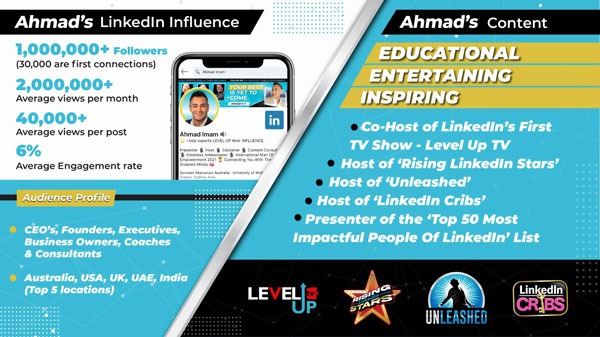
[0:34:58] I have one last question but before I go, a couple of things. One for the bully charity that you do. If I can give you a gift and I have no idea if whether we can make this thing work or not, I’m willing to either give you 1,000 digital downloads of my book, Powerful Personal Brands: A Hands-on Guide to Understanding Yours or I’ll give you 1,000 copies of it at cost if you could find a sponsor. If that helps people, I am more than happy to give you that to enable people to be better. If that can help a thousand people and they can help a thousand people, we’ve helped a million people. I’m more than happy to do that and we can figure out a way to make that work.
Before I let you go. The best way to get in touch with you is probably on LinkedIn. I have one question I ask everybody and this is the question I ask everybody as they walk out the door. As you leave the stage or you get out of a meeting, you get in your car and you drive away, what’s the one thing you want people to think about you when you’re not in the room?
[0:36:06] I want them to hopefully think about kindness. A combination of being kind to other people and being kind to yourself. Hopefully, through my example, people can learn to do that. That’s something that’s important to me. For me, before I depart this Earth, all I want to do is do my version. A small version of making this world a kinder place and that to me is important.
[0:36:36] You have done some incredible things so far. You’ve helped an amazing amount of people and you’ve given people some thoughts that they can take and they can make their lives better. I don’t think any of us can ask any more. Ahmad, thank you for being such an amazing guest.
[0:36:52] Thank you, my friend. It’s been a pleasure.
Important Links:
- [email protected]
- Success Resources Australia
- Personal Power II
- Bully Zero
- Powerful Personal Brands: A Hands-on Guide to Understanding Yours
- LinkedIn – Ahmad Imam
- Instagram – Ahmad Imam
- Facebook – Ahmad Imam
- TikTok – Ahmad Imam
About Ahmad Imam
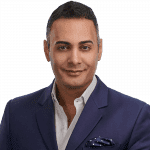 ▶︎ MY CLIENTS GET SEEN AND HEARD BY MILLIONS. WHAT COULD THAT DO FOR YOU AND YOR BUSINESS❓
▶︎ MY CLIENTS GET SEEN AND HEARD BY MILLIONS. WHAT COULD THAT DO FOR YOU AND YOR BUSINESS❓
They get invited to do podcasts, interviews, speaking arrangements and collaborations.
Their content receives 1000’s of views, hundreds of likes and comments.
They are receiving a steady stream of leads, referrals, closing deals and making $$$
They are seen as authorities in their industry, a source of knowledge, and highly sought after.
If you’re an expert in your field with a focus on serving others, then you deserve the same.
Let me help you make that happen.
▶︎ WHAT I DO:
I help experts level up their Influence by increasing their reach, visibility and engagement and creating impactful content that cuts through the noise and hits the mark with their target audience.
▶︎ WHO I WORK WITH:
⭐️ CEO’s, Executives, Founders, Speakers, Coaches and Consultants.
⭐️ I also train your staff to be Brand Ambassadors, promote your business and further extend your reach.
▶︎ HOW IT WORKS:
The ‘Influencer Service’ has 4 main pillars:
1️⃣ Influencer Strategy – I develop a plan that positions you as an authority in your industry and helps you discover your voice, articulate your message, generate revenue and build an engaged following.
2️⃣ Compelling Content – I help you create compelling content that showcases your expertise, hits the mark with your target audience and helps you stand out from the crowd.
3️⃣ Maximum Visibility – I ensure you and your content receive maximum visibility and engagement by leveraging off my network of One Million+ engaged followers.
4️⃣ Ongoing Support – You will receive one on one weekly consultations and reviews with myself as well as 24/7 support. I am with you every step of the way.
If you’re an expert in your field with an abundance of knowledge to share, then you deserve to be seen and heard by MILLIONS.
It’s time to LEVEL UP your INFLUENCE.


